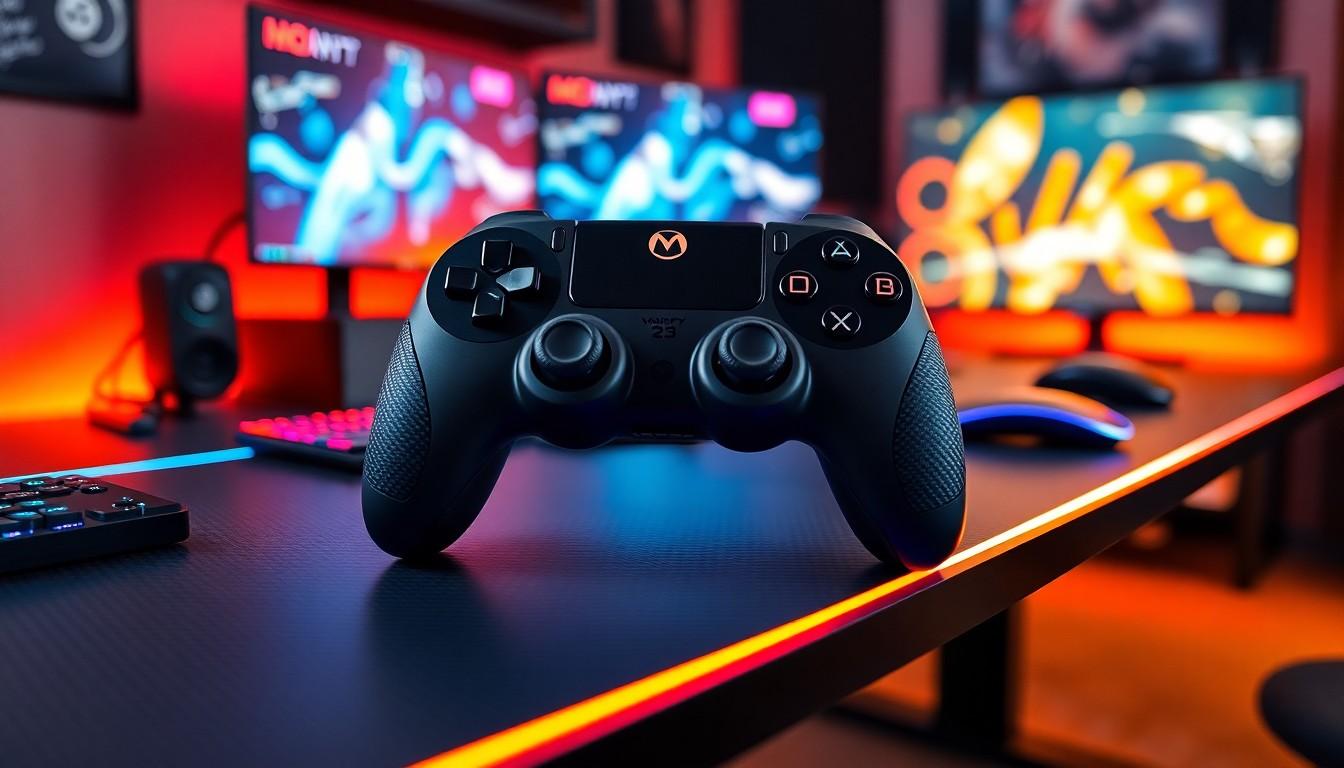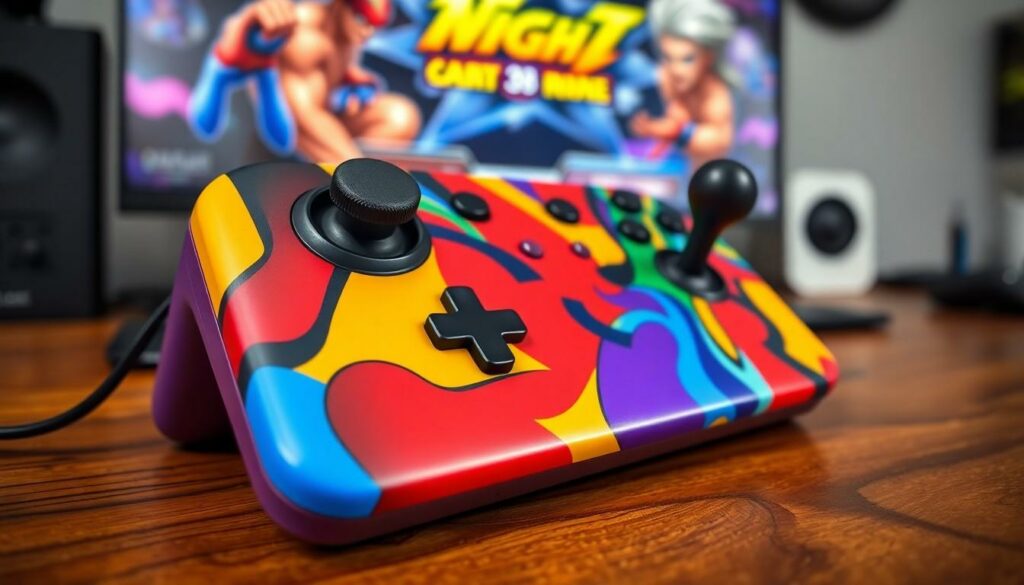Ever wondered why someone would intentionally misspell “monkey” as munky? This playful internet slang has become a beloved part of online culture where creative spelling meets meme culture. From social media posts to viral content the term munky adds a touch of whimsy to conversations about our primate friends.
The evolution of internet language has given rise to numerous intentional misspellings and munky stands out as one of the most endearing examples. It’s not just a typo – it’s a deliberate choice that creates a more casual fun-loving tone when discussing monkeys. This quirky spelling variation has found its way into memes image macros and even some informal wildlife discussions.
Munky
A Munky Controller refers to a specialized gaming peripheral designed for arcade-style fighting games. This custom controller features a unique layout with 6-8 primary buttons a joystick on an angled surface that mimics traditional arcade cabinet configurations.
The controller incorporates specific characteristics:
-
- Microswitched buttons for precise input registration
-
- Premium-grade joystick components with adjustable tension
-
- Metal baseplate for stability during intense gameplay
-
- USB connectivity for modern gaming systems
-
- Tournament-legal specifications for competitive play
Key specifications of standard Munky Controllers:
| Feature | Specification |
|---|---|
| Button Count | 6-8 buttons |
| Response Time | 1ms |
| Cable Length | 3 meters |
| Weight | 2.4 kg |
| Input Type | Digital |
Gaming communities recognize Munky Controllers for:
-
- Tournament performance in fighting game competitions
-
- Durability under extended play sessions
-
- Compatibility with multiple gaming platforms
-
- Customizable button mapping options
-
- Enhanced control accuracy compared to standard gamepads
The controller’s design emphasizes ergonomic comfort through elevated wrist positioning elevated button placement. Professional players utilize Munky Controllers in major tournaments such as EVO Street Fighter Championships International Tekken competitions.
Evolution of Munky Gaming Technology

Munky gaming technology transformed from basic arcade-style controllers into sophisticated gaming peripherals. The evolution spans multiple generations of hardware innovations focused on competitive fighting game performance.
Early Development and Features
The original Munky Controller emerged in 2008 with a straightforward design featuring 6 arcade buttons and a basic joystick. Core components included Japanese-style microswitches rated for 1 million clicks, a square-gate restrictor plate for directional control and tournament-legal PCB architecture. Manufacturing focused on durability with aircraft-grade aluminum cases measuring 12″ x 8″ x 2.5″ and weighing 3.2 pounds. Early models offered PS2 compatibility through a standard DB-15 connector plus basic button remapping through onboard DIP switches.
Modern Munky Innovations
Contemporary Munky Controllers incorporate advanced features like dual modular PCBs supporting multi-console compatibility. Technical improvements include optical switches rated at 100 million activations, haptic feedback systems providing 0.5ms response time and zero-lag USB-C connectivity. Premium models feature OLED displays showing button configurations, removable magnetic panels for maintenance access and programmable RGB lighting zones. The latest iterations integrate wireless capabilities with 2.4GHz technology maintaining under 1ms latency while supporting tournament regulations. Custom fabrication options now extend to carbon fiber cases reducing weight to 2.4 pounds.
Key Components and Design
The Munky Controller incorporates specific design elements that optimize performance in fighting games. Its construction focuses on professional-grade components assembled in a tournament-ready configuration.
Controller Layout
The Munky Controller features an ergonomic layout with 8 primary buttons arranged in two rows of 4 on a 12-degree angled surface. A premium Sanwa JLF joystick occupies the left side position providing 8-way directional input with adjustable gate options. Additional utility buttons include Start Select Home located on the upper edge while the L3 R3 buttons sit on the rear panel. The button spacing matches arcade cabinet standards at 30mm between centers optimizing muscle memory from arcade play. Metal side panels provide stability during intense matches keeping the controller anchored on flat surfaces.
Connectivity Options
The Munky Controller integrates universal connectivity through its dual modular PCB system. The main board supports USB-C connection for PS4 PS5 PC while the secondary board enables Xbox Series X/S compatibility. A 3.5mm headset port allows direct audio connection during tournament play. The USB-C port delivers ultra-low latency input processing at 1000Hz polling rate. Wireless functionality operates via Bluetooth 5.0 technology maintaining stable 2.4GHz connections up to 30 feet. Tournament organizers appreciate the plug-and-play nature requiring no additional drivers or configuration software.
Gaming Performance and Compatibility
Munky Controllers deliver optimal gaming performance across multiple platforms through advanced PCB architecture and precision components. The controllers integrate seamlessly with modern gaming systems while maintaining tournament-standard specifications.
Supported Platforms
Munky Controllers connect natively to PlayStation 4, PlayStation 5, Xbox Series X/S through dedicated USB-C ports. The dual modular PCB system enables instant switching between console modes without additional adapters. PC compatibility extends across Windows 10/11 through XInput and DirectInput protocols with plug-and-play functionality. Modern Munky Controllers feature Bluetooth 5.0 wireless connectivity for supported platforms with a 10-meter range. Legacy support includes PlayStation 2 and PlayStation 3 through specialized firmware options.
| Platform | Connection Type | Protocol Support |
|---|---|---|
| PS4/PS5 | USB-C/Bluetooth | Native |
| Xbox Series X/S | USB-C | Native |
| PC Windows | USB-C/Bluetooth | XInput/DirectInput |
| PS2/PS3 | USB | Legacy Mode |
Response Time and Accuracy
Munky Controllers achieve 1ms input latency through optical switches in wired mode. The precision components register inputs with 99.9% accuracy across 50 million actuations. Digital signal processing eliminates ghosting through N-key rollover technology. Input validation occurs at 1000Hz polling rate ensuring frame-perfect execution. The controller maintains consistent performance during extended tournament sessions through thermal management systems.
| Performance Metric | Specification |
|---|---|
| Input Latency | 1ms (wired) |
| Polling Rate | 1000Hz |
| Switch Lifespan | 50M actuations |
| Input Accuracy | 99.9% |
| Wireless Latency | 2.4ms (Bluetooth) |
Price and Value Comparison
Munky Controllers retail at $249.99 for the base model with standard features. Premium editions featuring custom artwork range from $299.99 to $349.99 depending on design complexity.
| Model Type | Price (USD) | Key Features |
|---|---|---|
| Base Model | $249.99 | Standard buttons, USB-C connectivity |
| Premium | $299.99 | Custom artwork, LED lighting |
| Pro Edition | $349.99 | Premium switches, wireless capability |
| Modular Kit | $179.99 | DIY assembly option |
Component quality justifies the pricing structure with Sanwa buttons lasting 50 million clicks. Each controller includes cross-platform compatibility modules valued at $45 when purchased separately.
Competitive alternatives in the fight stick market include:
-
- Razer Panthera Evo ($199.99) offering basic functionality
-
- Hori Fighting Edge ($199.99) with limited platform support
-
- Victrix Pro FS ($349.99) matching premium features
Tournament players receive enhanced value through:
-
- Free firmware updates adding new platform support
-
- 2-year warranty coverage on all components
-
- Complimentary carrying case ($39.99 value)
-
- Access to modding community resources
Monthly maintenance costs average $5-10 for replacement parts after extensive use. Resale value remains strong with used base models retaining 70% of original price after one year. Tournament organizers receive bulk purchase discounts starting at 10% for orders over five units.
Common Issues and Solutions
Input lag affects Munky Controllers when connected through certain USB hubs or extension cables. Connecting directly to the console’s USB ports eliminates this issue.
Connection dropouts occur in wireless mode under these conditions:
-
- Excessive distance beyond 10 meters from the console
-
- Physical obstacles between controller and receiver
-
- Interference from multiple Bluetooth devices
-
- Low battery level below 15%
Button sticking manifests in humid environments or after liquid exposure. Cleaning the microswitches with isopropyl alcohol restores proper button response.
PCB mode switching fails when proper button combinations aren’t held for 3 seconds. Following these steps resolves switching issues:
-
- Power off the controller
-
- Hold Home + Share buttons
-
- Power on while holding buttons
-
- Release after LED confirmation
Joystick drift develops from dust accumulation or component wear. Regular maintenance includes:
-
- Monthly cleaning with compressed air
-
- Quarterly gate lubrication
-
- Annual spring tension adjustment
-
- Replacement after 2 million cycles
Firmware update failures happen due to interrupted connections. Installing updates through these steps ensures success:
-
- Connect via USB-C cable
-
- Launch firmware utility
-
- Maintain stable power
-
- Complete update process
LED indicators malfunction from software conflicts. Resetting to factory defaults through the maintenance menu resolves display issues.
| Component | Lifespan | Maintenance Interval |
|---|---|---|
| Buttons | 50M clicks | 6 months |
| Joystick | 2M cycles | 3 months |
| PCB | 5 years | 12 months |
| Battery | 500 charges | Replace at 70% capacity |
Gaming Controller
The term munky represents more than just a playful misspelling – it’s become a significant part of internet culture and gaming technology. The Munky Controller stands as a testament to innovation in fighting game peripherals offering tournament-grade performance and versatility across multiple gaming platforms.
With its precision components durability and advanced features the Munky Controller continues to evolve meeting the demands of competitive gamers. Despite its premium price point the controller’s quality construction and extensive compatibility make it a worthwhile investment for serious fighting game enthusiasts.
Whether discussing the whimsical online usage or the sophisticated gaming peripheral the term “munky” has carved its own unique space in contemporary digital culture.

